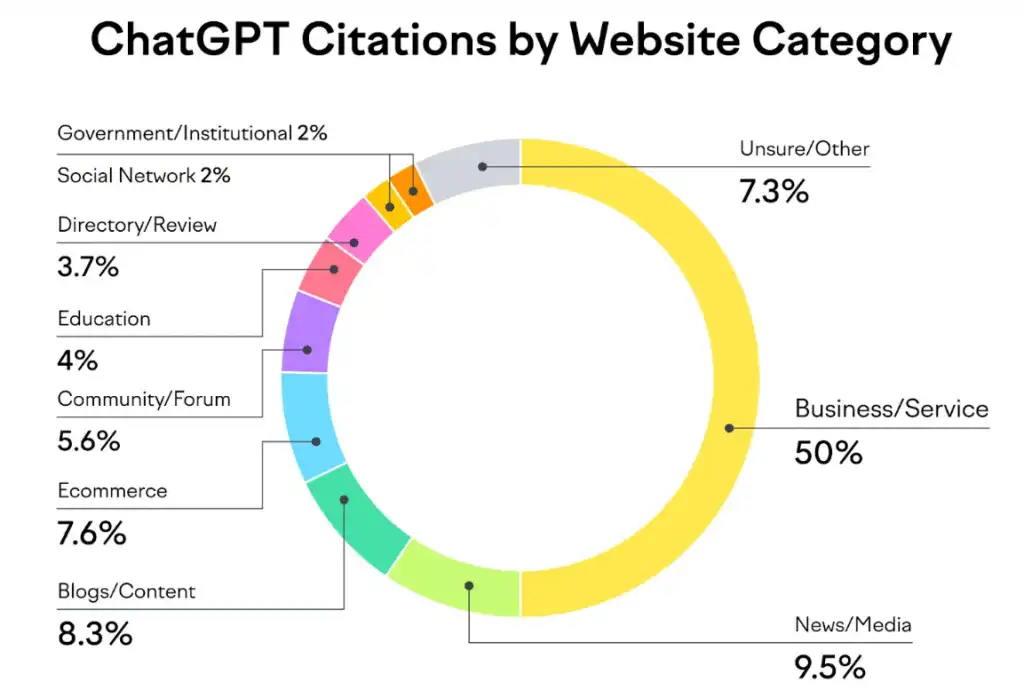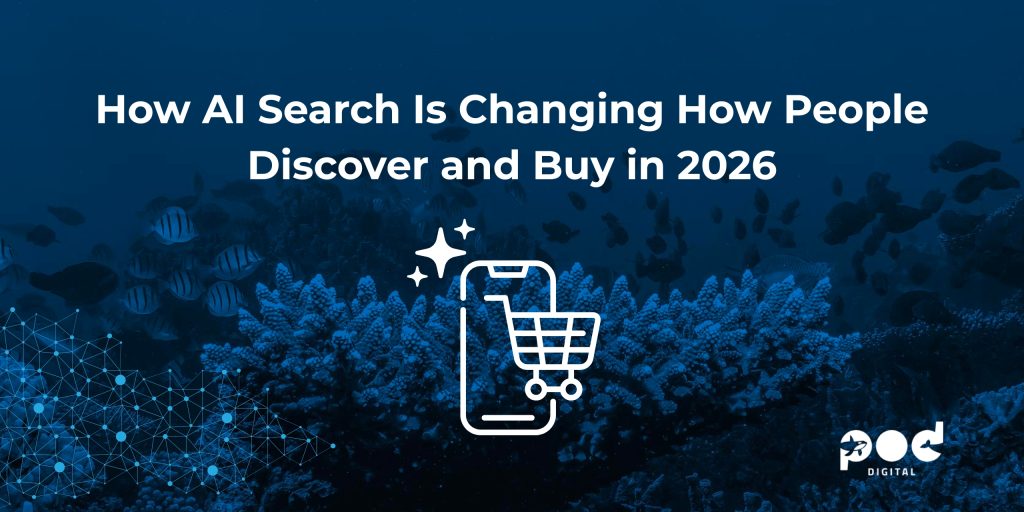You’ve probably noticed it. Your traffic has dipped a little, but conversions are oddly steady. They may even be up. One client told us it felt like search was “rewiring itself.” They’re right.
What’s happening isn’t just a small algorithm tweak. This is the biggest shift in how search works since the launch of Google itself. It’s called AI Search. It’s changing everything about SEO, from what ranks to what even gets seen.

SEO As We Know It Is Being Rewritten
Search results are increasingly being pushed below AI-generated answers, featured snippets and other dynamic elements. This means traditional website links are no longer the first thing users see.
Google’s AI Overviews and tools like ChatGPT, Gemini and Perplexity are dominating the conversation. Users are interacting with search in a fundamentally new way.
According to new research from Semrush, AI-powered search is projected to surpass traditional search by 2028. This may happen sooner if Google makes AI Mode the default search experience.
And the stakes? Higher than ever.
- AI search visitors are 4.4x more likely to convert than traditional search users.
- 50% of ChatGPT citations now link to business and service websites.
- AI frequently cites content from position 21 and beyond, breaking long-held assumptions about needing to rank in the top three to matter.

*This image is taken from Semrush
Why This Shift Matters to Your Business
One of our long-time clients recently asked us if they should worry about ChatGPT replacing Google. The short answer? Not exactly, but they should be thinking about how their content marketing strategy gets chosen by AI.
AI is compressing the search journey. Instead of visiting multiple websites, users now ask highly specific questions and receive condensed, curated answers that guide them closer to action.
In other words, AI users arrive on your site more informed and more ready to convert. Their intent is stronger. Their questions are more refined. And if your content isn’t optimised for this experience, you risk disappearing from the conversation altogether.
At Pod Digital, we’ve been preparing for this change since ChatGPT first launched in November 2022. We’re already implementing AI Search Optimisation, also known as GEO, strategies for our clients. We are ensuring their content is not just ranking, but being referenced, recommended and surfaced by AI systems where it matters most.
Your Google Rank Doesn’t Guarantee Visibility in AI
Traditional SEO taught us to aim for position one. But LLMs like ChatGPT and Perplexity don’t work that way.
Semrush found that nearly 90% of ChatGPT’s citations come from web pages ranked below position 20. This is often because these pages contain niche, specific or clearly structured content that LLMs can easily understand and quote.
This is a game-changer. It means that:
- Your older content may still have value if it’s well-structured.
- The good news for smaller businesses… Hyper-specific content that addresses narrow queries can outperform big-budget competitors.
- Authority now depends more on clarity and usefulness than on backlinks and domain rating.
Where AI Is Looking
AI search engines favour platforms rich in authentic, user-generated content. Google’s AI Overviews currently cite:
- Quora and Reddit
- YouTube
- Trusted news outlets, such as the BBC News
However, as I mentioned previously, 50% of citations from ChatGPT still point to business and service websites. This means your website can earn visibility if you create the right kind of content marketing strategy.
What AI-Friendly Content Looks Like
If your website reads like a brochure: overly salesy, generic and self-focused, offering little value or insight to the reader, it’s not going to cut it.
AI search prioritises:
- Structured FAQs with direct, specific answers
- Bullet points and stats that can be cited as fact
- In-depth guides that target unique customer situations
- Conversational, human-like tone with expert insights
At Pod Digital, we build LLM-friendly content marketing strategies into every campaign. That means planning your pages and articles not just for Google, but for the algorithms powering AI responses. We ensure your expertise is cited, your brand is visible and your website gets clicks that convert.
AI Search Changes How You Measure Success
When users visit your site after interacting with AI, their research journey is already halfway done. This flips traditional content metrics on their head.
So, we need to focus on:
- Conversion-optimised content for bottom-of-funnel users
- Clarity over quantity: structured information that supports decisions
- Distribution across platforms (LinkedIn and YouTube) to increase your brand’s mention footprint
What We Can Do Now: 3-Step Action Plan
Step 1: Audit Your Visibility in AI (Week 1)
- Test your most valuable queries in ChatGPT, Gemini, Claude and Perplexity.
- Note which competitors appear and how.
Step 2: Optimise Your Website (Month 1)
- Add FAQs to high-value pages.
- Update top content with bullet points, data and internal links.
- Use schema markup to help AI parse your content structure.
Step 3: Expand Your Reach (Months 2–3)
- Contribute to relevant LinkedIn threads.
- Encourage authentic reviews across key directories.
- Create comparison guides, checklists and opinion pieces.
At Pod Digital, we help clients implement these steps strategically, backed by data, not guesswork.
The Bottom Line for AI Search
The move to AI-powered search isn’t a future trend. It’s happening now, and businesses that adapt early will gain a major edge.
AI search isn’t replacing SEO. It’s evolving it. The principles remain: be helpful, be trustworthy, be relevant. But the tactics must change.
Our advice? Don’t wait until traffic drops to make your move.
Get in touch with Pod Digital and let’s future-proof your SEO for the AI age before your competitors get there first.
 Jane Wardle
Jane Wardle



